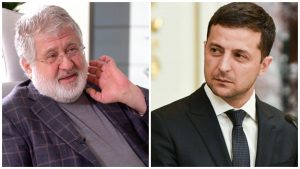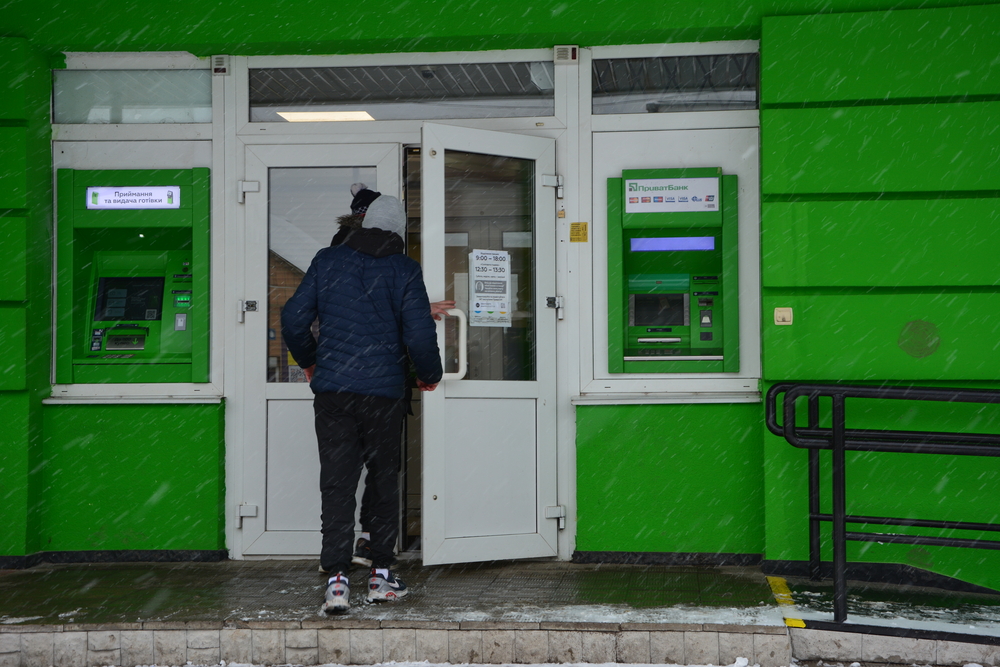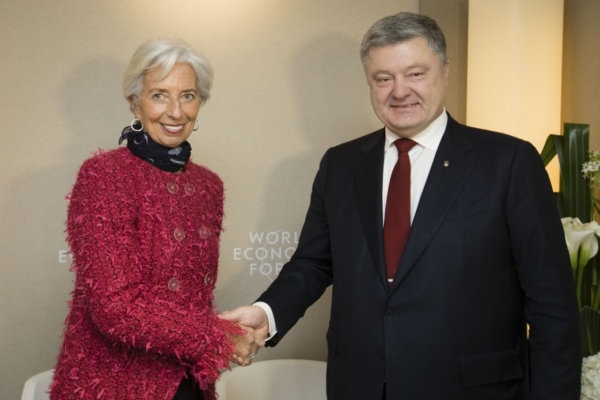Since 2014, Ukrainian society has undergone important changes. Some of them can be considered irreversible, others - stable enough to provide the driving force for further transformation. Key among these changes were banking reforms, which were launched after the 2014 Revolution of Dignity.
Many Ukrainian commercial banks made a bad name for themselves, namely by developing schemes to withdraw bank depositors' funds and lending them to their own legal entities, which subsequently directed them to offshore companies. In due course, the depositors were compensated from the state budget through refinancing mechanisms, which basically allowed bank owners to withdraw more assets, thus covering the hole caused by the theft at the expense of taxpayers.
.
Ukraine’s financial sector would not have survived the collapse of PrivatBank, so in 2016 the bank was forcibly nationalized by the National Bank of Ukraine, which introduced a temporary administration. Under Valeriya Hontareva’s chairmanship, the National Bank of Ukraine managed to clean up most of the banking system by eliminating corrupt financing mechanisms and withdrawing unscrupulous banks from the market.
It naturally followed that these dirty bank barons became strong, organic opponents of banking reforms. In addition to Ihor Kolomoisky's PrivatBank, we should mention Oleh Bakhmatyuk's VAB Bank and Mykhailivsky Ban
k, from which substantial assets were withdrawn according to very similar schemes.

In Ukraine, different types of people are directly at war with banking reforms, according to which stolen funds will no longer be compensated by taxpayers. Ihor Kolomoisky has repeatedly made public statements underlining that he wants the government to return his PrivatBank shares.
Conversely, Ukraine's international partners, and especially its IMF creditors, are strongly opposed to these plans and lobby firmly for banking reforms in Ukraine. The IMF has a standard policy of refusing tranches to countries with non-transparent governance and apparent instances of financial corruption in the banking system.
Ukraine’s relations with the IMF have been severely tested since the election of President Volodymyr Zelenskyy. Both public activists and Western experts were convinced that Zelenskyy’s close ties with oligarch Ihor Kolomoisky might lead to a partisan agreement to stop banking reform, and most importantly, to roll it back and return the banks to unscrupulous owners.
In May 2020, the Verkhovna Rada voted on a bill that was designed to prevent such processes from occurring in the future. However, thousands of amendments – a technology commonly called “legislative spam” led to many twists and turns during the actual voting process.
Lawmakers close to oligarch Kolomoisky, such as former employees of his 1+1 TV channel Oleksandr Dubinsky and Olha Vasylevska Smahliuk, submitted over 16,000 amendments to the so-called “anti-Kolomoisky” bill in order to slow down the procedure. In addition, it is clear that this law was initiated and finally adopted not thanks to the Presidential Office nor the pro-government faction, but more as a consequence of pressure from Ukraine’s international partners and IMF creditors.
Parliament votes for crucial “anti-Kolomoiskyi” bill, opening door for IMF support
Banking reforms suffered an especially hard blow after the resignation of Yakov Smoliy from the chairmanship of the NBU, against whom signatures in the Verkhovna Rada were collected by MPs close to Ihor Kolomoisky, in particular Oleksandr Dubinsky.
In the summer of 2021, many heads of NBU departments and individual employees were laid off, in particular, employees of the NBU licensing department were dismissed en masse. The reason was the new policy initiated by NBU chairman Kyryl Shevchenko, who was appointed to office after Smoliy. The new NBU policy dealt a severe blow to the corporate governance structure introduced in the banking reforms, which served as a safeguard against the abolition of the reform itself and the return of dishonest banks.
In addition, in early September, NBU officials put forward a programmatic thesis on the need to replace the chairman of the financial regulator and roughly outlined their vision of what he should be like.
Despite Shevchenko’s statements that Ukraine would receive an IMF tranche by the end of 2021, the issue still has not been resolved. The IMF mission to Ukraine is scheduled to arrive in Ukraine in late September, so the NBU and the Ministry of Finance must demonstrate their willingness to cooperate and build up trust.
However, not everything is as simple as it seems. Chairman Shevchenko’s past does not give cause for optimism. According to an investigation by civic activists, Shevchenko was involved in withdrawing US $1.1 billion of depositors’ assets from Terra Bank, where he worked as a manager in early 2010. Any dishonesty and involvement of the financial regulator's management in such unscrupulous deals can become real obstacles to continued cooperation with the IMF.
Secretary of the National Security and Defense Council Oleksiy Danilov recently made some indicative statements about the “bank failure” - mass liquidation of banks by crooked managers in 2015-2016 - where he directly accused the former NBU Board. In fact, Danilov’s statement may just be an attempt to hide an upcoming blow to banking reform and the people who are in charge of implementing it in the banking sector. In fact, Ukrainian authorities display a surprisingly dangerous double loyalty to all parties in this process, attempting not to quarrel publicly either with the IMF, or with former bank owners, or with former NBU Board members.
If the Ukrainian government wants to maintain good relations with Western partners and receive IMF funds, such manifestations of double loyalty must be ruled out. After all, it is impossible to keep pretending to be completely loyal to both banking reform and its opponents. Sooner or later, the final choice will have to be made! If Ukraine continues ignoring the IMF’s position and recommendations, no Western government will provide the funds granted by the IMF to Ukraine.
It should be underlined that this involves not only the banking sector but also the law enforcement component. The West has been making unequivocal statements about investigating asset withdrawals, in particular with regard to the banking activities of Ihor Kolomoisky and his entourage.
Ukraine’s lack of reactions in this case only worsens its already faltering relations with its Western partners.





